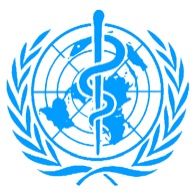
Recent News
May 7th, 2010
April 5th, 2010
March 30th, 2010
March 26th, 2010
March 22nd, 2010
MOHs urge public health response
Dr. Cory Neudorf, the Chief Medical Health Officer with Saskatoon Health Region and Chair of the Canadian Public Health Association, urges Canadian public health professionals to respond to the climate crisis. Dr. Neudorf's letter is pasted below. The orginal letter can be downloaded here.
Dr. Gerry Predy, Senior Medical Health Officer for Alberta Health Services and Chair of the Urban Public Health Network, urged a similar message to all medical health officers in Alberta. Dr. Predy's letter can be downloaded here.
Special thanks to Dr. Blake Poland at University of Toronto and Mark Pajot at Region of Peel Public Health for their input to this letter.
----------
Colleagues:
I am writing at a critical time in our history, with an essential but perhaps unusual message.
In less than 70 days, 192 countries will meet to thrash out a new global agreement to avert catastrophic climate change. This is a historical occasion, the outcome of which will shape the course of human health and development into the future. Post the Copenhagen negotiations, we must immediately embark on a massive cultural transformation - one that rapidly yields a low carbon future, and peace, prosperity and health for all.
If we are to succeed, we must all play our part - including those of us in public health leadership.
As health professionals, we have an essential role and capacity to contribute to the collective response to climate change.
We should be especially concerned about the effects of climate change on human health. They are many and potentially severe. At its worst, climate change will cause death and disease for hundreds of millions of people worldwide. In Canada, we are relatively better protected from these health effects, at least in the near-term, but we are not immune. Moreover, we have all committed to primum non nocere - to "first, do no harm". In upholding our commitment, we must take aggressive action to slow and preferably prevent the massive harm that climate change threatens to cause.
As highly respected and trusted professionals with a reach and prominence in communities across Canada, we have the opportunity to promote positive changes on many levels. This includes by adding our voices to the calls for stronger climate protection policies at all levels of government, by working toward healthier public policy more generally, by greening the health care system (which is a massive energy user and polluter in its own right) and by actively participating in reshaping the cultural underpinnings that are at the root of the climate crisis. These are all essential contributions for resolving the climate crisis, and should be essential to our good health professional practice.
The good news, if we can call it that, is that our work on climate change is very much complementary to our work on many other important health issues that we have embraced. Former California Health Officer Dr. Richard Jackson speaks incisively to this fact: "What's good for our kids and their health and what's good for their neighbourhood, school, and our city, state, nation and planet are all the same thing".
I urge us all to embrace the climate change issue and to act on it however appropriate, both in our individual capacity as citizens and in our unique capacity as health professionals. I include, for your consideration, several suggested actions that we as physicians could take to make progress in this area:
- include chapters and sections in our health status reports on climate change, and recommend policy changes at the local, provincial and national levels;
- write letters of support to political leaders urging them to support strong climate legislation;
- discuss and participate in sustainability initiatives in our communities and with Health Boards or municipal governments;
- speak to media on the issue;
- sponsor staff education events to build awareness about health effects of climate change;
- build internal capacity to adapt to climate change, including for example by hiring people with climate change & health expertise or by strengthening collaborations with universities;
As with many issues, the health effects of climate change will likely be disproportionately felt by those who are most disadvantaged in both the developed and the developing world. It is our moral obligation as health professionals to support and protect the vulnerable, and advocate to decrease inequities where possible. I thank you in advance for considering how you can help in these efforts within your sphere of influence.
Sincerely and for the good of us all,
Dr. Cory Neudorf
About Cory Neudorf
Dr. Cory Neudorf is the Chief Medical Health Officer for the Saskatoon Health Region. He received his medical degree from the University of Saskatchewan, a Master’s of Health Science degree in Community Health and Epidemiology from the University of Toronto, and is a fellow of the Royal College of Physicians and Surgeons of Canada with Certification in the specialty of Community Medicine. He is the past president of the National Specialty Society for Community Medicine, Chair of the Canadian Public Health Association, and Chair of the Canadian Population Health Initiative Council. Dr. Neudorf is a Clinical Associate Professor in the Department of Community Health and Epidemiology at the University of Saskatchewan, College of Medicine.
